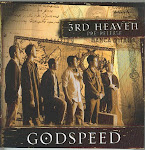I’ve learned more about dialogue by listening to the members of our critique group read their manuscripts and comment on mine, than I have from any how-to book, hands down! Books are necessary but (News Flash!) they can’t interact with you!
We have of eight pairs of listening and discerning ears in Wordsmiths. As we read our manuscripts aloud, each God-given and uniquely creative brain processes the information in a different way.
Every member has her own distinct insight on what is read.
They may agree on the overall status of a manuscript, and yet one or two members may add something else to the mix that’s entirely different. I soak in each persons dialogue style as I listen to these writers read their own work. This soaking, learning process has helped me critique my own dialogue for my early chapter book.
After each meeting, I come away having learned something about my dialogue—that little thing that can make or break your book!
Most of us know that people are trained to recognize counterfeit currency by touching the REAL thing hundreds of times. They do not concentrate on the counterfeit. They concentrate on the real thing so many times, it becomes easy to recognize the stuff that’s fake.
To me, writing dialogue is much like that. How do we recognize the real, natural, believable dialogue in our own writing vs dialogue that sounds contrived and fake? By hearing the REAL THING in a great critique group---and by READING the REAL THING in books over and over again. We soak in GOOD dialogue until we're saturated with great examples.
As with counterfeit money, before long you will notice that
unrealistic, unbelievable, "FAKE" dialogue
becomes easier to identify.
If you’re struggling with writing dialogue, try to join or form a great critique group, then dialogue about your dialogue! It will help you learn to identify the real, the believable, and the natural in your own writing.
c 2009, Sheryl Ann Crawford























